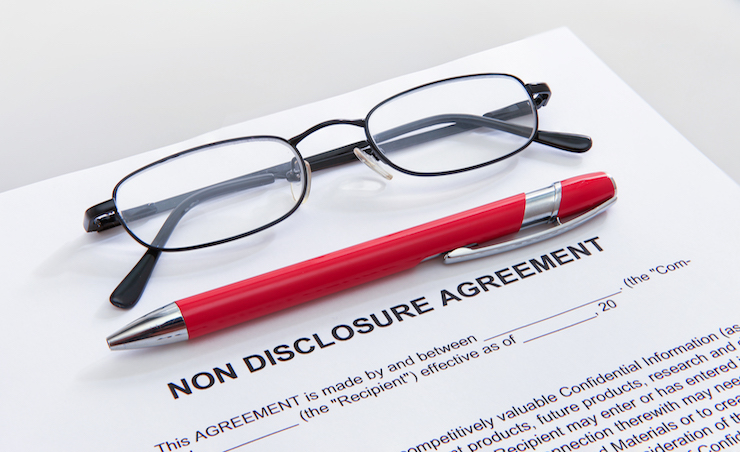 Does your business need a non-disclosure agreement? The answer is likely, “Yes!”
Does your business need a non-disclosure agreement? The answer is likely, “Yes!”
Non-disclosure agreements (NDAs) help protect a business’s sensitive information from getting stolen or shared without permission. They are contracts that commit contractors, vendors, and other project partners to keep a business’s data and trade secrets private.
What Kind Of Information Can an NDA Protect?
Even if your business isn’t dealing with highly classified subject matter or high-profile clients, you have information worth keeping confidential. A few examples include:
- Your client information
- Your product formulas
- Your annual marketing strategy
- Analyses about your competitors
- Your business plan
I’ll bet you can think of other information as well that you wouldn’t want a contractor or vendor to blab about to other parties.
When Should You Ask for an NDA to be Signed?
Because NDAs are pretty much standard procedure in business, most people you work with won’t balk at signing them. Under most circumstances, the best time to ask for a signed NDA is when you’ve decided to do business with someone. You may want to ask for a signed NDA even earlier, as you’re deciding whether to work with a contractor or vendor, if you’ll be revealing private company information during the selection process.
What Should an NDA Include?
A basic NDA typically includes the following elements:
- Parties involved
- Type of information that should be kept private
- Term of the NDA (i.e., the length of time company information will be considered confidential)
- Steps to be taken if someone is suspected of violating the NDA
- Resolution method to be used in the event of a breach
NDAs are typically short and to the point, but that doesn’t mean you shouldn’t pay attention to detail. I recommend making yours very specific regarding what information you consider confidential and under the protection of your NDA. Often, NDAs will state that information that was publicly known when the NDA was signed, or that becomes publicly known through no fault of the receiving party are not considered confidential. The more clear you are on what people shouldn’t share, the better chance all signing parties will understand their obligations.
If a breach happens, small businesses often choose arbitration over filing a lawsuit and dealing with the court system. In some circumstances, however, that may not be your best option. For that reason, you might consider putting an attorney on retainer when there’s a suspected breach. If the other party is found guilty of a breach, your lawyer can help you recover damages as well as attorney fees.
Where Can You Get An NDA?
An NDA is one of the easier legal documents to produce. You can find templates online through numerous websites such as Upcounsel. Because your business is different from others, I encourage you to have an attorney review your NDA to make sure it includes everything it should before you present it to other parties.
A Few Closing Points To Consider
Whether you’re just starting your business or have been running a company for years, you have data worth protecting. An NDA can help provide the peace of mind that your customer lists, marketing plans, product designs, and other information critical to the success of your company will stay under wraps and not get into the wrong hands.
Realize, however, that an NDA does not completely guarantee another party won’t mistreat your private information. Always exercise caution when disclosing sensitive information to others—if they don’t need to be privy to certain data, you should think twice before sharing it with them.



